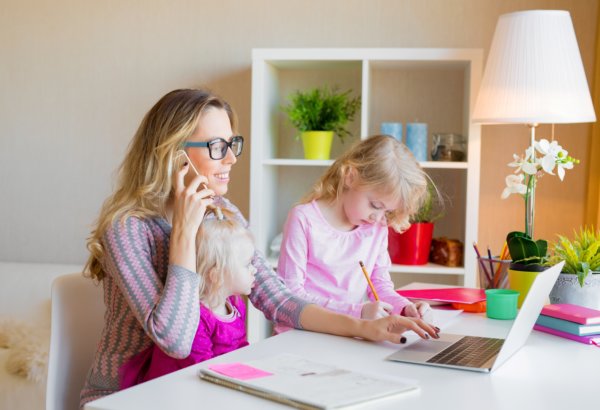
Your Career Might be Affecting Your Family Time – Should You Have to Choose?

It’s 2019 and every day, we come to a new realisation that proves that we have reached our peak mental and/or physical limits. Whether it be opting for cereal in lieu of dinner or letting your laundry pile get out hand, after a day’s hard work, it’s only natural that you want to do as little as possible in order to restore your body and mind.
Another corner we seem to be ‘cutting’ is family time, which is currently at an all-time low in the UK. Averaging at just under 4 hours per week (34 mins a day), 60% of parents also admit that their family time usually consists of doing something non-active.
Recent research collated by Forest Holidays, reveals that 78% of working parents are putting in extra hours at work to try and get ahead. Almost 50% of the survey participants confessed that the most significant consequences of their ‘overtime’ were a distressed work-family balance, followed closely by a negative effect on their relationship with their partner.
With half a million British workers suffering from work-related stress in 2018, it comes as very little surprise that ‘burnout’ has recently been recognised by the WHO in its revision of the International Classification of Diseases.
Clearly, fighting the ‘career corner’ can have notable effects on both someone’s mental health and home life, with attempts at a better work-life balance becoming increasingly more challenging. However, considering modern-day issues that we face such as e.g. gender pay gaps, rise of the gig economy, high cost of living, a parent should not have to make a choice between their work and home lives.
We have looked at why family burnout is becoming a regular occurrence and what can be done to help regain your work-home life balance.
Cutting Down On ‘Alone-Together’ Time
‘Alone-together’ time has risen, demonstrating families are often engaging with devices instead of each other. 7 in 10 people recognise the benefits of lowering their screen time, and 8 in 10 find having a digital detox liberating, despite having FOMO (the fear of missing out).
Setting technology-free days or pausing the wi-fi during family time, can help to quickly get everyone engaging with family activity.
Spend More Time Outdoors
We spend fewer days out together in recent years compared to 20 years ago. The Duchess of Cambridge has recently emphasised her own affinity and passion towards spending more time with her family in nature and outdoor spaces with her recent visits to London gardens, highlighting the “benefits on physical and mental well-being, particularly for young children.”
Spending time outdoors can have a positive effect in a variety of ways including:
- Boost moods and fight anxiety
- Improved mental health
- Eliminate fatigue
- Getting vitamin D
Doing Everyday Things Together
50% of British parents with a child under 18 say they would like to spend more time together, but with homework, tech and work getting in the way, two-thirds of families consider watching television to be quality time.
The umbrella term ‘family time’ can cover loads of different activities (cooking, grocery shopping etc.) – the goal here is for parents and children to be engaged in the same activity, focusing on the quality of the time rather the activity itself.















































